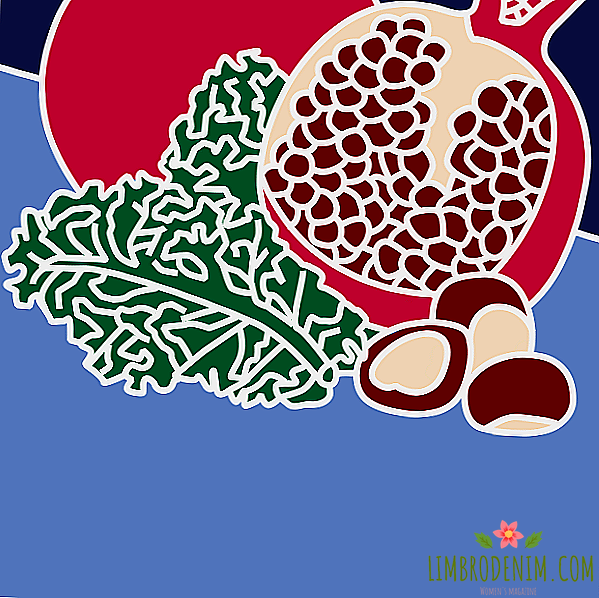"We were taught not to complain": Tatyana Lazareva about life with ulcerative colitis
Inflammatory bowel disease (IBD) - This is a topic about which the average person knows little. Diarrhea, abdominal pain, fatigue, which manifest these diseases, are often not taken seriously, and many people are embarrassed to consult a doctor with intestinal disorders. However, these symptoms may be manifestations of IBD, including ulcerative colitis or Crohn's disease. No one knows where these diseases come from, and their mechanism is believed to be similar to autoimmune.
If IBD is not treated, complications can be very dangerous - from colon cancer to perforation. True, it is not yet possible to completely cure these conditions, but the preparations of the new generation help to maintain remission; yet many patients end up facing surgery to remove a large part of the intestine. Unfortunately, a separate problem, especially in our country, is the difficulty with diagnosis, availability of drugs and disability clearance. Actress and TV presenter Tatyana Lazareva told us about life with ulcerative colitis, taking care of herself, her attitude to publicity and charity.

 Stomach upset, breaking stools is such an uncomfortable, taboo subject. In addition, few people believe that this is serious - just think, indigestion, probably ate something wrong, you need to take a pill. There are situations when it comes from excitement, the so-called bear disease - people are used to chuckling at it, but in reality it can be a manifestation of a disease like mine. These are symptoms to pay attention to. My attacks continued for many years, and in 2013 such an aggravation began that I had to call an ambulance; Then in the hospital I was diagnosed with ulcerative colitis.
Stomach upset, breaking stools is such an uncomfortable, taboo subject. In addition, few people believe that this is serious - just think, indigestion, probably ate something wrong, you need to take a pill. There are situations when it comes from excitement, the so-called bear disease - people are used to chuckling at it, but in reality it can be a manifestation of a disease like mine. These are symptoms to pay attention to. My attacks continued for many years, and in 2013 such an aggravation began that I had to call an ambulance; Then in the hospital I was diagnosed with ulcerative colitis.
A terrible feature of ulcerative colitis is that it is a slow and very insidious disease. The quality of life changes barely noticeable every day by a millimeter - and just looking around for a year or a few years, you realize how much has changed. This disease presses the person under him, people somehow adapt, and time passes. It is very important to stop and realize that if you do not engage in treatment, it will be worse.
I once got a very good doctor, Boris Kirkin. He was a very old man when I got to him; many specialists in ulcerative colitis in the country are his students. Unfortunately, he died a year after we met. When I got to the hospital in an ambulance, he immediately diagnosed me. When then I came to the reception, he talked to me for an hour each time, explaining everything in detail, as students in a lecture.
Back in 2013, he said that this disease is not treated and that I can register a disability - and I laughed and thought: "Well, what a disability." Then the difficulties with parking lots were just beginning, and I said as if in a joke that I could then park the car in places for disabled people. And only now I began to understand what a serious illness is in fact - and how problematic the whole history of disability in our country is.
The fact is that if you are assigned a disability, you can buy expensive medicines at discounted prices for a year. But after a year, the disability must be confirmed - and since the treatment begins to act, the symptoms cease and the disability is removed. The disease is chronic, it returns as soon as you stop taking the drugs. It turns out a vicious circle. Medicines cost a lot of money, I still can afford them, but I would love to receive them at a reduced price.
I did not design disability because I know how humiliating it is in our country. My father is a disabled World War II blind and without a right hand. He confirmed disability annually. Imagine, a man is 84 years old, at the age of seven years his hand was torn off, it will not grow, but all these years he had to come and confirm it. It stopped me, and while I can buy the drugs myself, I decided not to apply for a disability. I understand that I was lucky to quickly get to a good doctor - and most will have to go to the offices. Here, unfortunately, it is necessary to reconcile, to understand that health is more important than all these humiliations and loss of time.
At first, I didn’t seriously react to the diagnosis - we are such a people, we are taught to endure, be courageous and smile. At least, my generation was raised like this: we should not complain, we should be strong, because the weak are not needed by anyone. Moreover, being successful, smiling, and strong is much more pleasant than being sick and weak. This is a legacy of the Soviet country, which of us can’t be squeezed out, only hope for children and grandchildren. But five years passed, I had a very severe aggravation, and I realized that it was time to look at my life a little differently. Only now I realized that this is a disease with which I always live, and it is impossible to heal and forget about it again. You need to take care of yourself, love yourself, value yourself. All diseases, all symptoms, all signals of our body say: stop, think, look around, listen to yourself, finally pay attention to yourself.
Our body is very cleverly arranged, and the intestine is generally the organ that first appears in the embryo, and evolutionarily it was in the most primitive organisms. There is a wonderful book, it is called "Charming intestines" - very popular, it is written in bright language, and I advise everyone to read it, because it is important to know how our body works. We are not at all accustomed to loving ourselves and treating our bodies with respect and attention - and this is perhaps the main thought that I would like to convey to all Russian people. Man is born for a long and happy life, and many of our problems are related to the fact that we do not believe that we deserve it.
The fact that I have ulcerative colitis, I first publicly told at a press conference on this disease, most recently. I knew what I was going for, I knew that there could be an inadequate reaction in the yellow press, but I still wanted to make my story public - and I don’t regret it. Many people write to me on facebook and instagram, thank me for raising this topic. I want people with this disease to see that they are not alone, that we can talk about this, and the disease is not fatal, and we can and must fight it. There are innovative biological drugs, there is an opportunity to achieve remission, just need not give up and go to the doctor.
I think it is very important that people accept themselves as they are, with all diseases, problems, shortcomings. It is a pity that some stars still have shine in the first place, feathers, ethers - in fact, all people grow old, get sick, and everyone turns off the hot water in the summer. And public people, I think, should just show their fans (no matter how many, a thousand or a million) an example, including raising serious questions and talking about problems.
I have been doing charity work for more than fifteen years, I am a trustee of the Sozidanie foundation. Charity is a business that cannot be forced; it requires great strength and responsibility. In my new role as a distributor of information about ulcerative colitis and IBD, I emphasize that I will do it as far as I can, as far as I have the desire and opportunity. To participate in such stories need a resource.
First of all, you need to resolve issues with yourself, bring yourself to balance. It's like on a plane - we are properly taught to first put the mask on ourselves, and only then on the child. And we all have to be driven into the subconscious mind that you need to take care of yourself first of all - otherwise you will not help anyone else. We have assumed that thinking of ourselves is egoism. But this is not egoism, but the norm: to help others, we need strength.





